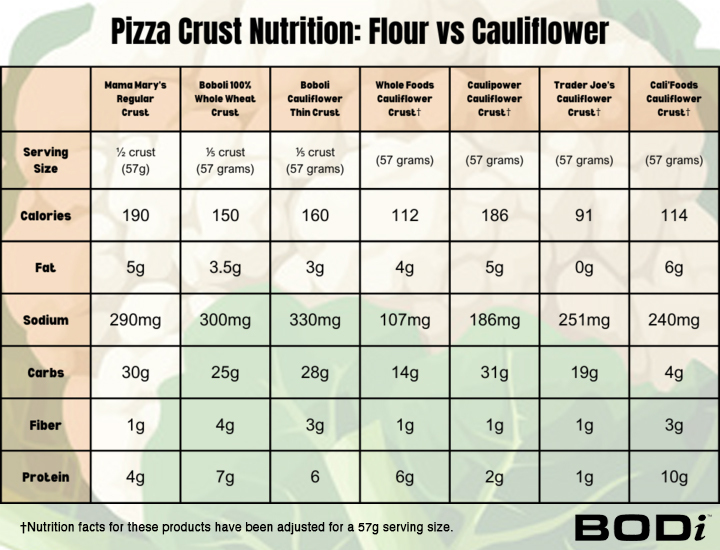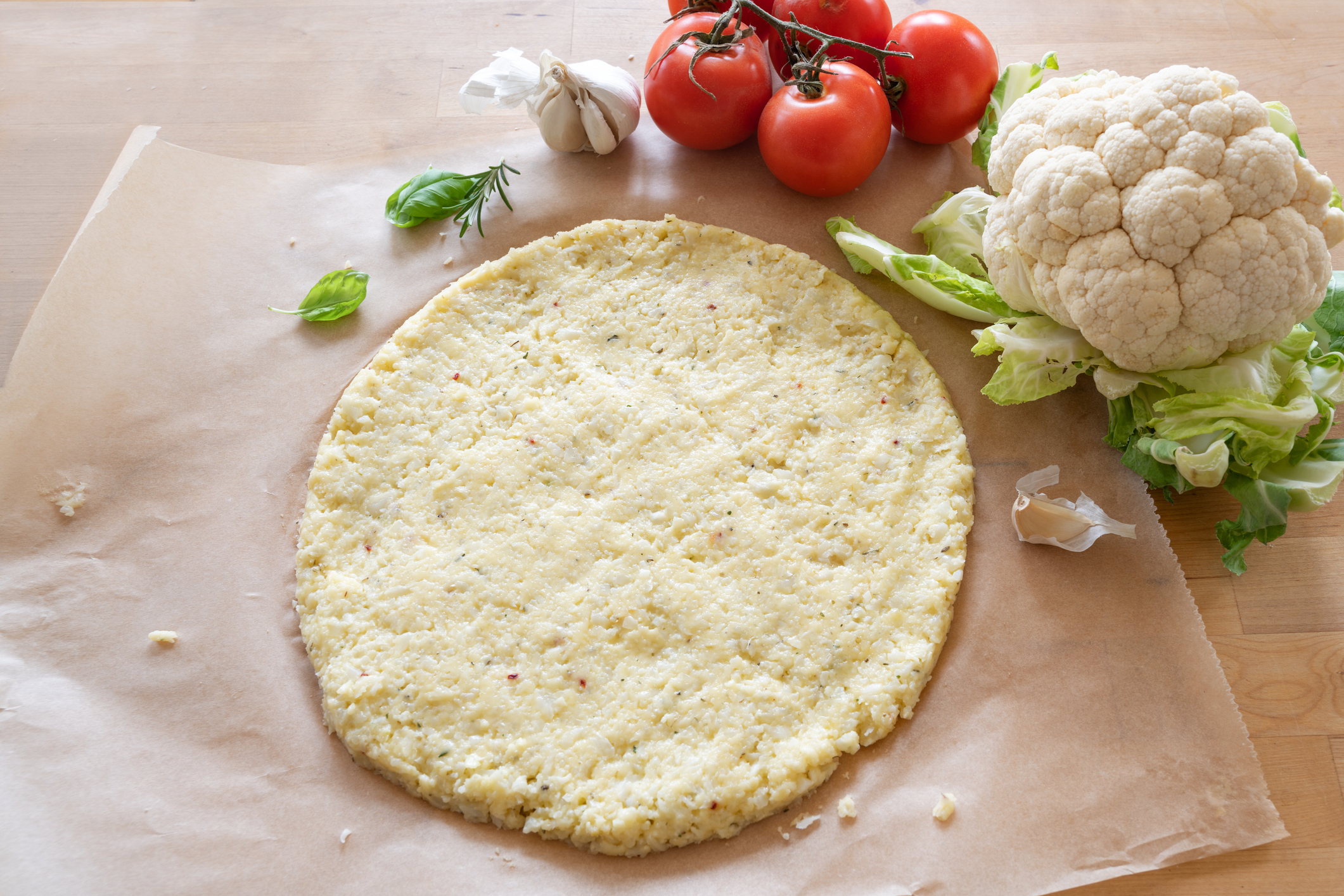Table of Contents
Take any food you love, make it out of cauliflower, and it’s magically healthy. Or at least that’s what most people think about pizza. But is cauliflower pizza crust healthy?
The fear of carb consumption has led to an explosion of creative carb substitutes, cauliflower pizza crust being one of many.
“People are so anti-carbohydrate and think white flour isn’t good for you. So they wonder, ‘How can we still eat pizza?,’” says Keri Gans, RDN, author of The Small Change Diet. “[Cauliflower pizza crust] also has a health halo because it’s associated with a vegetable.”
But look beyond that halo glow and check the labels. Then you can really see if cauliflower crust is better for you than regular crust.
Is Cauliflower Pizza Crust Healthy?
Compared to regular pizza crust, cauliflower crust does tend to have less sodium. But when you dive into the other nutrition facts, the results aren’t totally in favor of the veggie substitute.
For comparison sake, we’ll look at some of the best-selling pizza crust brands, like Boboli and CAULIPOWER. The chart below shows how some of the most popular regular crust brands stack up compared to cauliflower pizza crust brands.
As you can see, store-bought cauliflower pizza crust is a bit all over the place when it comes to the nutrition facts. Some cauliflower crust brands are lower in carbohydrates, but not all of them.
So if you don’t check the label, you may end up consuming just as many carbs as a slice of white or whole wheat pizza crust. The same goes for calories — cauliflower pizza crust isn’t always lighter.
And even if it is, think about how important is it for you to save, say, 40 calories (about the amount of half a small apple), especially if you might not enjoy the taste as much, Gans says.
But what about fiber? Veggies are usually brimming with fiber, right?
Well… one cup of raw cauliflower has 2 grams of fiber, and some cauliflower pizza crust has only 1 gram per serving. So in this case, whole wheat crust actually provides more fiber.
Lastly, protein-wise, whole wheat crust again tends to be king. However, some cauliflower pizza crust has a good dose of protein if it contains eggs (like the Cali’flower Foods option in the chart above).
So what’s the main takeaway here? Read the label. There’s so much variance between brands, you can’t just assume any and all cauliflower pizza crust is the same, or even healthier than the regular or whole wheat options.
And when it comes to specific ingredients, some brands add eggs and/or cheese to help the cauliflower bind and add flavor. So if you have any food allergies or follow a specialized diet, you want to make sure you know what you’re consuming.
Should You Buy Cauliflower Pizza Crust?
“When it comes down it, what is your reason for choosing it?” Gans asks. Whether you hope to save calories or cut carbs, or you’re trying to eat more vegetables, be sure to read the nutrition facts so you can confirm you’re achieving what you want.
It’s also important to be be mindful of the serving size and toppings, she adds, since that’s the other part of the pizza picture.
“You can’t eat the whole pie, and you can’t throw all the other health ‘guidelines’ out the window,” Gans says. “Are you building your pizza and making it a healthy vehicle for more vegetables, or are you adding processed meats like pepperoni and sausage?”
To make the healthiest pizza (regardless of crust), she recommends choosing plenty of vegetables, such as fresh tomatoes, spinach, garlic, and artichoke hearts.







More Stories
The One Thing You Should Never, Ever Do if You Have Insulin Resistance and Want to Lose Weight
Tuna Salad Lunch Box – JSHealth
Advanced Wellness Course – Heart Health